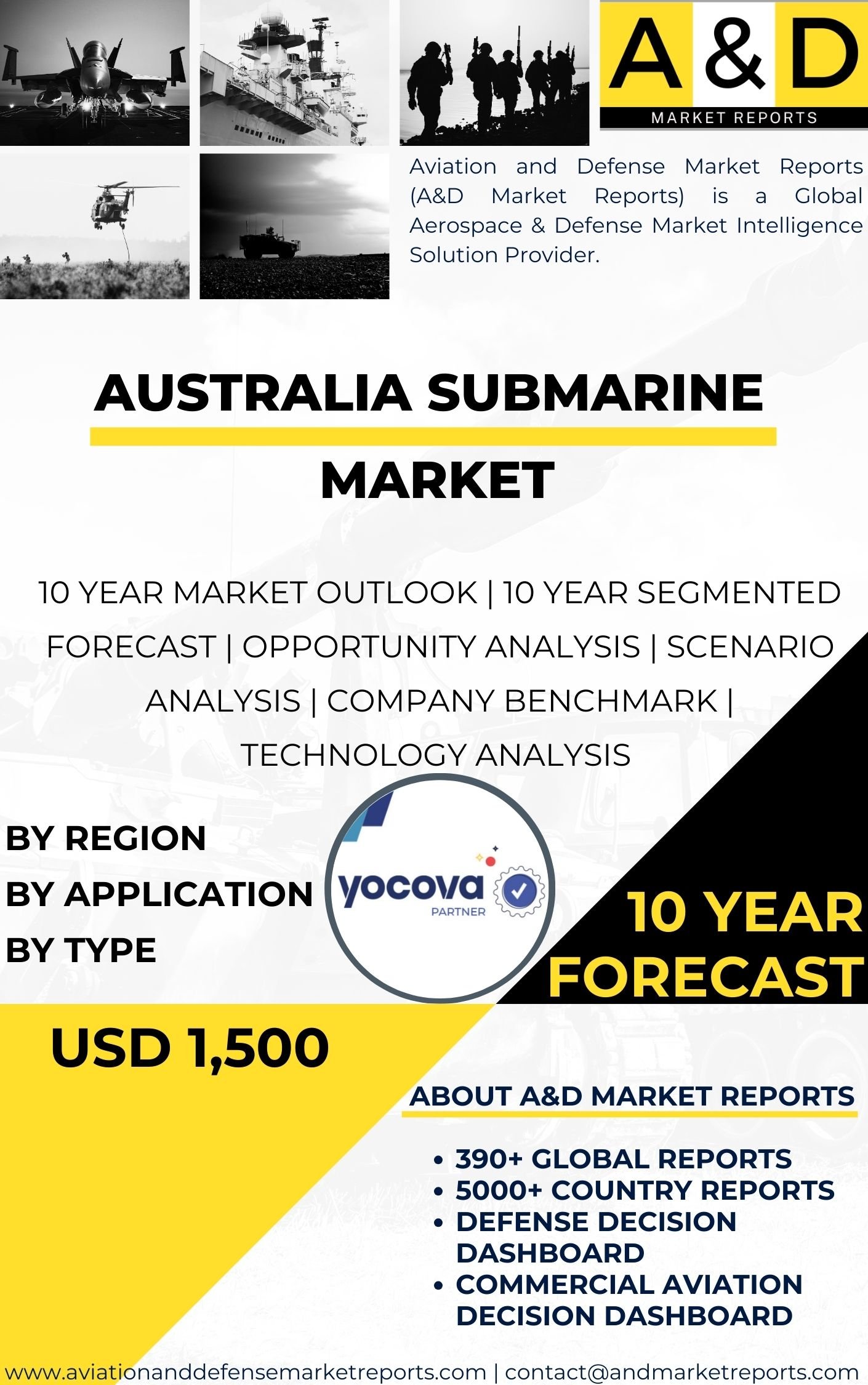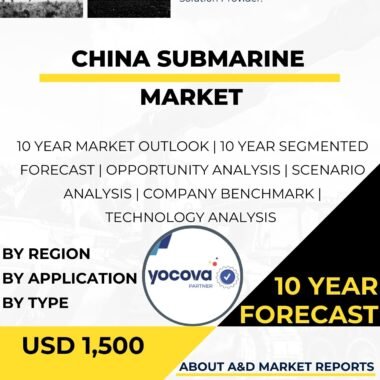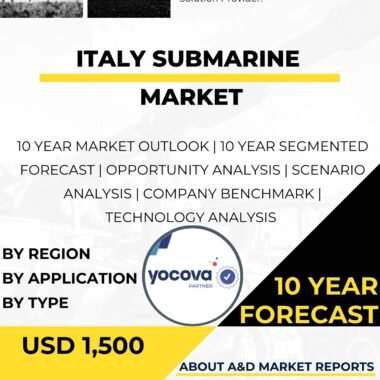Description
Australia Submarine Market Overview
The Australia Submarine Market plays a vital role in maintaining the nation’s maritime defense and strategic strength. As an island nation with vast maritime territories and key interests in the Indo-Pacific, Australia depends heavily on its submarine fleet to protect its waters, ensure regional stability, and enhance national security. This article provides an overview of the Australia Submarine Market, highlighting its importance, fleet composition, key players, technology trends, and future prospects.
Significance of the Australia Submarine Market
The Australia Submarine Market is crucial for supporting maritime security and defense operations. Submarines offer stealth, endurance, and versatility, making them essential for intelligence gathering, surveillance, anti-submarine warfare, and deterrence missions. With vast waters and valuable trade routes, Australia relies on submarines to safeguard its economic and security interests.
Current Fleet and Capabilities
Australia’s current submarine fleet primarily consists of Collins-class submarines, built domestically and forming the backbone of the Royal Australian Navy (RAN). These submarines are equipped with advanced sensors, torpedoes, and anti-ship missiles. They provide credible undersea strike capabilities and a strong deterrent against potential threats.
Future Developments: The Attack-Class Submarines
The future of the Australia Submarine Market centers on the Attack-class submarine program, which aims to build 12 advanced submarines to replace the aging Collins-class fleet. These new submarines are designed to feature cutting-edge stealth, extended range, and enhanced combat systems, ensuring Australia maintains a modern and effective undersea force for decades.
Key Players in the Australia Submarine Market
Domestic companies such as Naval Group Australia and ASC (Australian Submarine Corporation) lead the nation’s submarine production and sustainment efforts. They work in partnership with international defense leaders like Naval Group (France), which provides advanced submarine design and technology expertise.
Technological Advancements in the Australia Submarine Market
Technological innovation drives the Australia Submarine Market, focusing on stealth, propulsion, and sensor integration.
-
Stealth Enhancements: Modern acoustic dampening and hull coatings reduce noise signatures, allowing submarines to operate undetected.
-
Advanced Sensors: Integrated sonar arrays and periscope systems improve detection and tracking capabilities.
-
Propulsion Systems: Air-independent propulsion (AIP) extends underwater endurance, reducing the need to surface frequently.
-
Combat Systems: Advanced control and targeting systems integrate real-time data from multiple sources to support rapid and accurate decision-making.
Government Initiatives and Industry Development
The Australian Government has made substantial investments in the Australia Submarine Market, particularly through the Future Submarine Program. This initiative supports domestic shipbuilding, fosters local innovation, and strengthens sovereign defense capabilities. The program also emphasizes technology transfer and local industry participation, ensuring Australian companies gain expertise in advanced submarine manufacturing.
Economic and Industrial Impact
The Australia Submarine Market contributes significantly to national industry growth, creating jobs and supporting advanced manufacturing, electronics, and defense R&D sectors. Submarine development stimulates related industries such as materials engineering, naval design, and undersea communications technology.
Civilian Applications of Submarine Technology
While primarily military, submarine technologies have civilian applications in marine research, underwater exploration, and environmental monitoring. Technologies like sonar and autonomous underwater vehicles (AUVs) are used for oceanographic studies and resource exploration.
Future Outlook for the Australia Submarine Market
The Australia Submarine Market is expected to continue expanding as Australia upgrades its maritime defense capabilities. Ongoing investment in research, innovation, and domestic production will enhance self-reliance and ensure long-term operational readiness. Collaboration between government, defense industries, and global partners will be key to sustaining Australia’s leadership in undersea warfare technology.
Conclusion
The Australia Submarine Market is fundamental to national defense, ensuring maritime security and strategic deterrence. The transition from Collins-class to Attack-class submarines marks a major milestone in strengthening Australia’s undersea warfare capabilities. Continued innovation, government support, and industry collaboration will ensure Australia maintains a powerful, modern, and resilient submarine fleet for future challenges.




